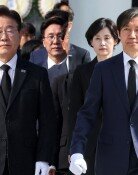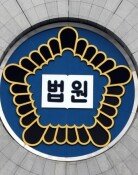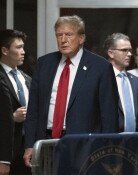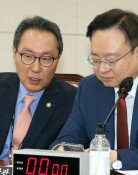[Editorial] Lack of Science Fundamentals
[Editorial] Lack of Science Fundamentals
Posted March. 18, 2009 04:31,
In his first lecture as chair professor of Ewha Womans University in Seoul, 2006 Nobel Prize winner in physics George F. Smoot said Korean college students lack scientific fundamentals. His criticism was really painful. Smoot said he was surprised to learn that few Koreans in high school study physics, adding a weak foundation in basic science will force Korea to face its limitations. Domestic science education has been known to have many problems. The shame has grown heavier, however, in the wake of the criticism by a renowned foreign scholar.
In the study by the Program for International Student Assessment for students aged 15 or over in 2006, Korea ranked 11th in science among 57 countries, including 30 member nations of the Organization for Economic Cooperation and Development. Korea was in first place in 2000 but fell to fourth in 2003. In math, however, the country still ranks first or second in the world. The root cause of Koreas failure in science is found in the reduced number of science lessons from four hours per week to three. Worse science education faces harsh criticism since high school students deciding to major in science and engineering snub physics since they cannot get good grades.
Smoot even criticized Korean companies. When he was told few Korean students major in basic science since they face difficulty in finding a job after graduation, he said, Technology changes every two years. If Korean companies stick to hiring students whose skills instantly contribute to generating profits, they have no hope. He is right. Korean companies earn money from shipbuilding, cars and electronics, industries in which they invested two or three decades ago. It is uncertain, however, whether those industries can keep bringing in revenue for the country over the long term. Unhealthy roots cannot grow and bear healthy fruit. Accordingly, Koreans have difficulty nurturing new growth engines since they invest little in basic science.
The Lee Myung-bak administration has strengthened math education since this year. Even students not majoring in science must take infinitesimal calculus. Several universities have also made high school students major in science to apply for a science test when they take the university entrance examination. Such efforts have been limited, however. Korea must do more to strengthen its basic science instead of envying Japan, whose scholars win Nobel Prizes every year. The Korean government should strengthen science education in middle and high school and come up with innovative measures to support science and engineering departments.
Headline News
- Israel prepares for retaliation against Iran
- Samsung reclaims top spot, surpassing Apple in smartphone market
- 77% of Koreans in 20s and 30s are 'Kangaroo Tribe' due to job crisis
- KBO referees embroiled in controversy over ABS decision concealment
- Inflation, oil price surge put double shock on global economy







